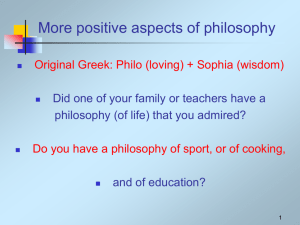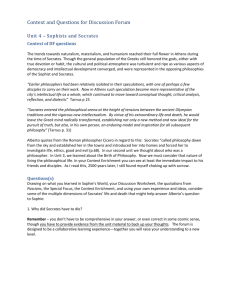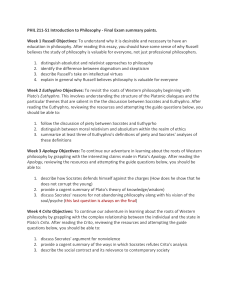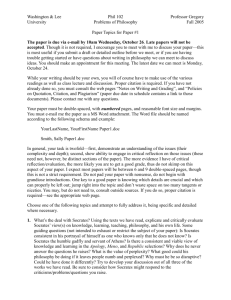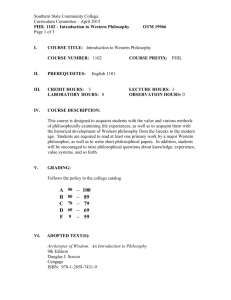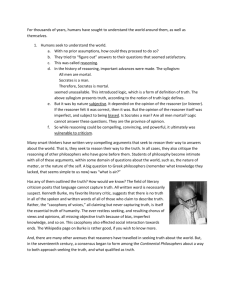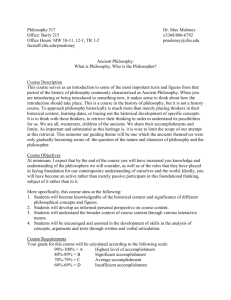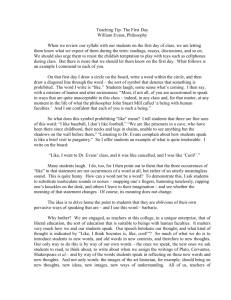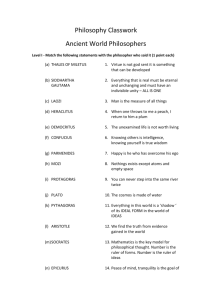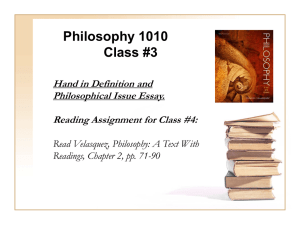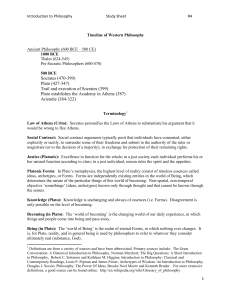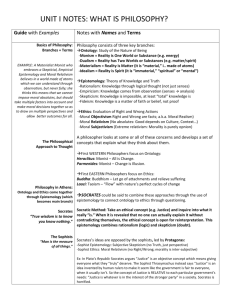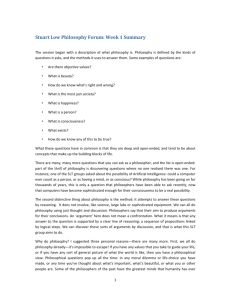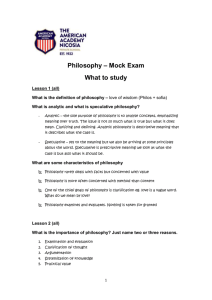here
advertisement
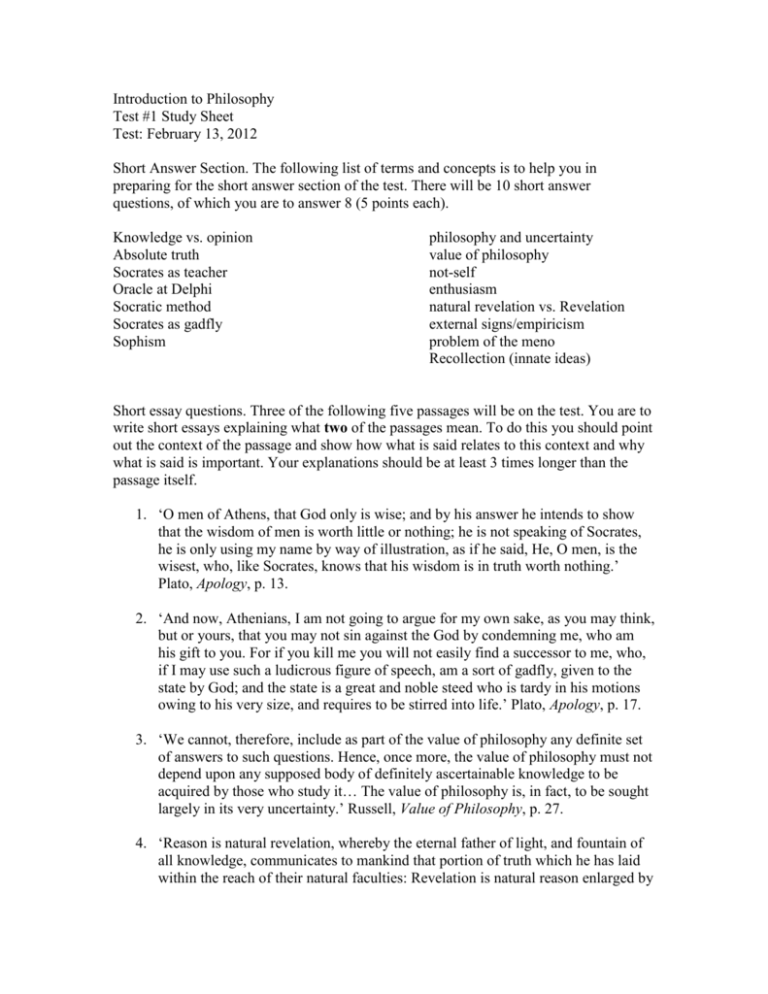
Introduction to Philosophy Test #1 Study Sheet Test: February 13, 2012 Short Answer Section. The following list of terms and concepts is to help you in preparing for the short answer section of the test. There will be 10 short answer questions, of which you are to answer 8 (5 points each). Knowledge vs. opinion Absolute truth Socrates as teacher Oracle at Delphi Socratic method Socrates as gadfly Sophism philosophy and uncertainty value of philosophy not-self enthusiasm natural revelation vs. Revelation external signs/empiricism problem of the meno Recollection (innate ideas) Short essay questions. Three of the following five passages will be on the test. You are to write short essays explaining what two of the passages mean. To do this you should point out the context of the passage and show how what is said relates to this context and why what is said is important. Your explanations should be at least 3 times longer than the passage itself. 1. ‘O men of Athens, that God only is wise; and by his answer he intends to show that the wisdom of men is worth little or nothing; he is not speaking of Socrates, he is only using my name by way of illustration, as if he said, He, O men, is the wisest, who, like Socrates, knows that his wisdom is in truth worth nothing.’ Plato, Apology, p. 13. 2. ‘And now, Athenians, I am not going to argue for my own sake, as you may think, but or yours, that you may not sin against the God by condemning me, who am his gift to you. For if you kill me you will not easily find a successor to me, who, if I may use such a ludicrous figure of speech, am a sort of gadfly, given to the state by God; and the state is a great and noble steed who is tardy in his motions owing to his very size, and requires to be stirred into life.’ Plato, Apology, p. 17. 3. ‘We cannot, therefore, include as part of the value of philosophy any definite set of answers to such questions. Hence, once more, the value of philosophy must not depend upon any supposed body of definitely ascertainable knowledge to be acquired by those who study it… The value of philosophy is, in fact, to be sought largely in its very uncertainty.’ Russell, Value of Philosophy, p. 27. 4. ‘Reason is natural revelation, whereby the eternal father of light, and fountain of all knowledge, communicates to mankind that portion of truth which he has laid within the reach of their natural faculties: Revelation is natural reason enlarged by a new set of discoveries communicated by God immediately, which reason vouches the truth of, by the testimony and proofs it gives, that they come from God.’ Locke, Philosophy as Love of Truth, p. 21. 5. ‘Meno: And how will you enquire, Socrates, into that which you do not know? What will you put forth as the subject of enquiry? And if you find what you want, how will you ever know that this is the thing which you did not know?’ Plato, Meno, p. 37.

